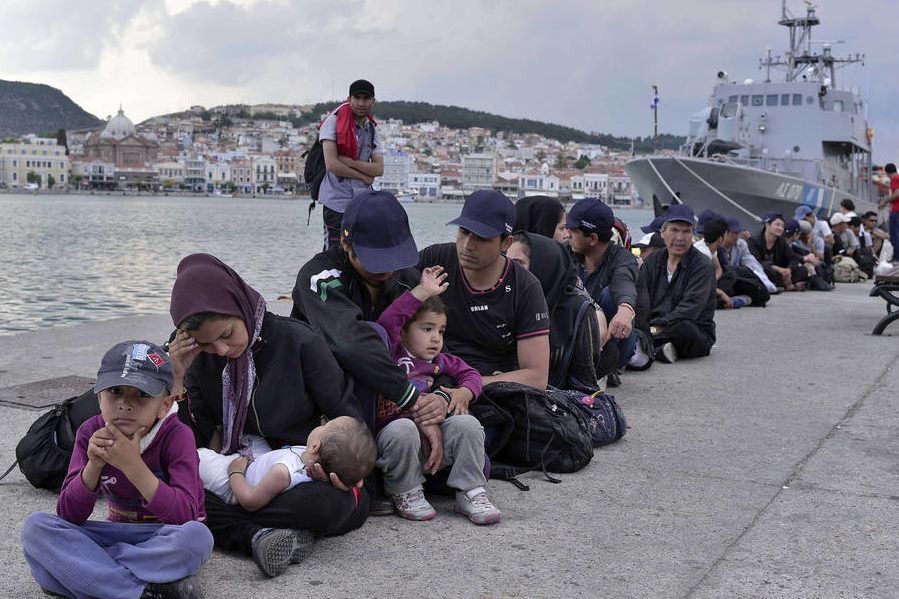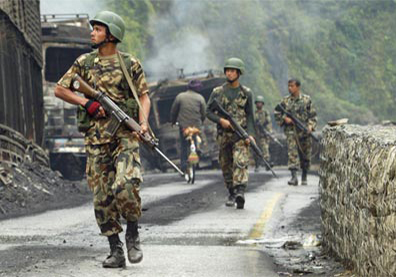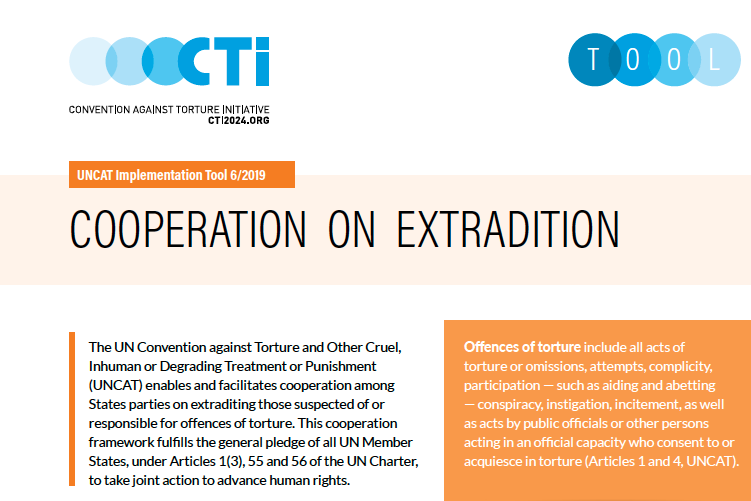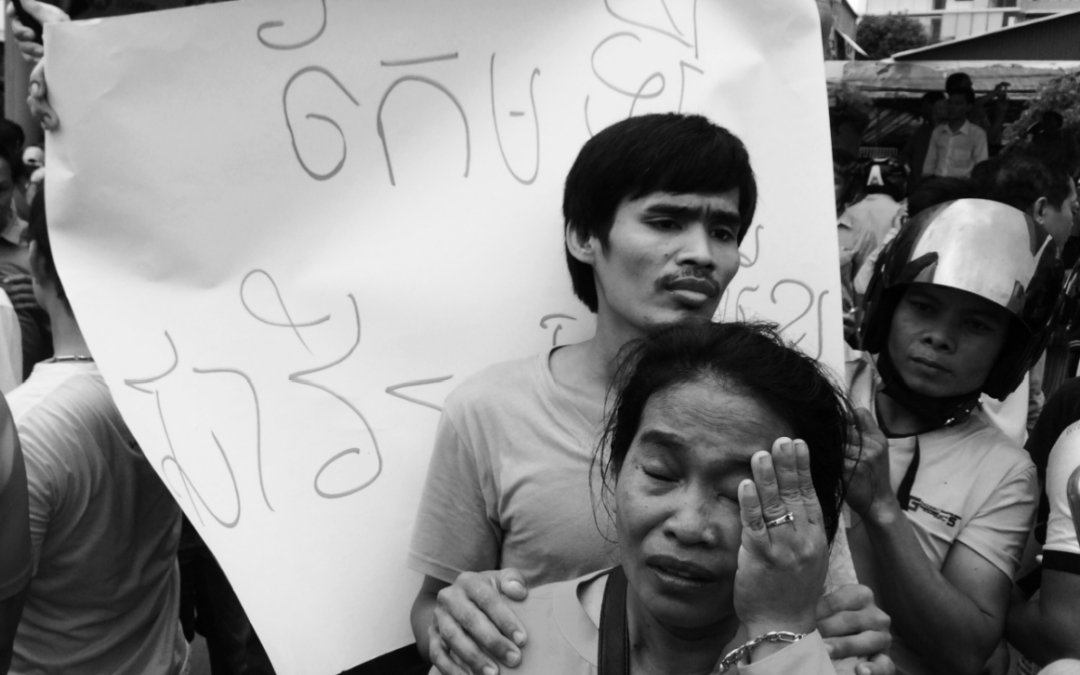
Aug 27, 2019 | News
Following the killing of an Afghan boy in the Moria reception center in Greece, the ICJ calls on the Greek authorities to effectively implement measures of protection prescribed to Greece this May by the European Committee on Social Rights.
According to information by the UN High Commissioner for refugees, the 15-year-old Afghan boy was killed and two other boys injured after a fight broke out at the Moria reception centre on the Greek island of Lesvos.
The safe area at the Moria Reception and Identification Centre, RIC, hosts nearly 70 unaccompanied children, but more than 500 other boys and girls are staying in various parts of the overcrowded facility without a guardian and exposed to exploitation and abuse.
“This is not a situation unique to Moria. In other parts of Greek islands and also on mainland Greece human rights of migrant children are being violated,” said Karolína Babická, ICJ Legal Adviser.
Security of children as well as access to basic needs, such as appropriate shelter, food water or medical care, were the focus of a recent case the ICJ brought together with ECRE and Greek Council for Refugees (GCR) to the European Committee on Social Rights (ECSR).
The ECSR acknowledged the urgency of the situation and decided on immediate measures in the case already on 23 May 2019.
“It is unacceptable that the decision on interim measures has not yet been implemented by the Greek government and now we have to witness such tragic events like a death of a child in the camp,” said Karolína Babická.
“It is a sad wake-up call to the Greek administration that the situation cannot remain like this,” she added.
In its decision, the Committee members required the Greek government to immediately provide migrant children with appropriate shelter, food, water, education and medical care; to remove unaccompanied migrant children from detention and from Reception and Identification Centers (RICs) at the borders, place them in suitable accommodation for their age and appoint effective guardians.
“Greece must urgently bring those children to safety and make sure their basic needs are met and human rights are protected, in order to comply with its international legal obligations,” said Róisín Pillay, ICJ Europe and Central Asia Programme Director.
Contact:
Karolína Babická, Legal Adviser, ICJ Europe and Central Asia Programme, m +32 475 46 2067 ; e: Karolina.Babicka(a)icj.org

Aug 22, 2019 | News
The ICJ calls on the Ukrainian authorities to investigate the murder of lawyer Olexandr Ivanov, killed today with an automatic weapon near SIZO (Pre-trial Dentention Centre) №6 in Kropyvnytskyi.
The shooting was carried out from a car by unknown persons. The lawyer died on the spot. Another person injured in the incident was hospitalized in critical condition.
“The killing of lawyer Oleksandr Ivanov must be independently, promptly, and thoroughly investigated and the perpetrators brought to justice,” said Temur Shakirov, ICJ Senior Legal Adviser.
“Such crimes strip any legal reforms of their positive impact if lawyers’ life is always in danger when exercising their functions,” he added.
The police have confirmed the occurrence of the killing and initiated an investigation preliminarily qualified as intentional murder under article 115-2 of the Criminal Code of Ukraine.
The Ukrainian National Bar Association (UNBA) is planning to convene an emergency meeting of the Committee on Protection of Lawyers Rights and Professional Guarantees. The UNBA has also referred to the leadership of regional prosecution and police authorities to bring the case under personal control.
“During its recent mission to Ukraine the ICJ heard of cases of killings of lawyers and this case demonstrates that little progress has been achieved in addressing the security of lawyers in Ukraine,” said Shakirov.
Additional information:
International human rights law, including the European Convention on Human Rights to which Ukraine is a party, requires that states take steps to protect the life and physical integrity of persons who they know or ought to know are at real risk of violence.
According to the UN Basic Principles on the Role of Lawyers, governments must ensure that lawyers are able to perform all of their professional functions without intimidation, hindrance, harassment or improper interference (principle 16). The UN Basic Principles specify that “[w]here the security of lawyers is threatened as a result of discharging their functions, they shall be adequately safeguarded by the authorities” (principle 17).

Jul 29, 2019 | News
The Government of Nepal has failed to fulfill its commitment to provide justice for the victims of the country’s decade-long armed conflict, the ICJ, Amnesty International, Human Rights Watch, and TRIAL International said today.
The organizations echoed statements by victims and human rights groups about the Nepal government’s inaction on addressing conflict-era human rights violations, and a lack of transparency in the appointment of commissioners to the Truth and Reconciliation Commission and to the Commission on the Investigation of Enforced Disappearances.
“The lack of progress in holding perpetrators accountable for the suffering inflicted upon victims, their families and Nepali society as a whole, is appalling,” said ICJ Asia-Pacific Director Frederick Rawski.
“Nearly 13 years after the signing of the Comprehensive Peace Agreement, political leaders inside and outside of government are still playing games by politicizing the process. It is about time that they showed some courage, and took action to ensure access to justice, instead of continually looking after their own short-term self-interests,” he added.
“We have seen no evidence so far that the authorities of Nepal are serious about fulfilling their obligation to investigate conflict-era violations and bring all those suspected of criminal responsibility to justice in fair trials before ordinary civilian courts,” said Raju Chapagai, South Asia researcher at Amnesty International. “If the commitment to human rights obligations was as unflinching as claimed by Prime Minister KP Sharma Oli, the government would have acted diligently to deliver on its transitional justice responsibilities.”
After being elected in 2018, Prime Minister Khadga Prasad Oli renewed promises that the legal framework governing the transitional justice process would be brought into conformity with Nepal’s international human rights law obligations, as the Supreme Court had repeatedly directed. However, the government never amended the law, and instead pushed forward – without adequate consultation – with the establishment of a committee to recommend appointments to the transitional justice bodies.
“The failure of the government to deliver on its commitment to ensure truth, justice and reparations for the victims of conflict-era abuses shows a dismaying disregard for the protection of human rights,” said Meenakshi Ganguly, South Asia Director at Human Rights Watch.
The organizations called on the government to: 1) suspend the current process, and initiate a consultative and transparent process for the nomination and appointment of commissioners; 2) follow through on commitments to amend the 2014 transitional justice law to ensure that the legal framework is consistent with international human rights standards and Supreme Court rulings; and 3) adopt and publicize a plan for taking the transitional justice process forward.
“The legitimacy of Nepal’s transitional justice process lies both on a transparent and consultative appointment process for commissioners, and a strong legal foundation to allow the commissions to fulfil their mandate,” said Helena Rodríguez-Bronchú, Head of TRIAL International’s Nepal program. “Societal consensus is crucial for both factors.”
Amnesty International, ICJ and TRIAL International had previously submitted their analysis of the draft transitional justice legislation circulated in 2018 and had made recommendations on ensuring compliance with international human rights law. Human Rights Watch had also alerted for reform of the transitional justice law before appointing the commissioners. In April 2019, United Nations experts also wrote a joint letter to the foreign minister reminding the government of its commitment to amend the law and calling for a transparent process for appointing new commissioners after the terms of the previous commissioners expired.
Contact
Frederick Rawski, ICJ Asia-Pacific Director, t: +66 644781121 ; e: frederick.rawski(a)icj.org,
Nepal-trans just-News-Press releases-2019-NEP (story in Nepali, PDF)

Jul 19, 2019
On 17 July 2019, the Convention Against Torture Initiative (CTI) released the 6th tool in their series of UNCAT implementation tools on “Cooperation on Extradition”. The ICJ developed the tool for the CTI.
This latest tool focuses on the extradition framework established in the UN Convention against Torture and Other Cruel, Inhuman or Degrading Treatment or Punishment (UNCAT), which enables and facilitates cooperation among States parties on extraditing those suspected of or responsible for offences of torture.
The tool sets out in an understandable format the basic elements of UNCAT’s extradition framework, explaining how it operates in practice, with the aim of bringing those suspected or convicted of torture to justice, thus ending impunity for torture and other ill-treatment. It provides 32 international, regional and national examples of how the framework can operate in practice.
You can read the tool here: Universal-CTI-Cooperation-Advocacy-ENG

Jul 9, 2019
Today, on the third anniversary of the killing of prominent political commentator and human rights defender Kem Ley, the ICJ and 21 other civil society organizations renewed their call on the Cambodian government to establish an independent and impartial Commission of Inquiry to conduct a thorough and effective investigation into his killing.
“It has been three years since significant gaps were highlighted in the investigation and trial of Kem Ley’s case, which need to be remedied through an independent, impartial and effective investigation,” said Frederick Rawski, ICJ’s Director for Asia and the Pacific.
“The lack of progress reflects a clear lack of political will by the Cambodian government towards meeting its obligations under international law to fully and impartially investigate a potentially unlawful death and protect the rights to life and to effective remedy,” he added.
On 10 July 2016, Kem Ley was shot and killed while having a morning coffee at a gas station on Monivong Boulevard in central Phnom Penh. On 23 March 2017, after a half-day trial hearing, the Phnom Penh Municipal Court found Oeuth Ang – the suspect arrested by authorities who identified himself as “Choub Samlab” or ‘Meet to Kill’ – guilty of Kem Ley’s murder, and sentenced him to life imprisonment.
On 24 May 2019, Cambodia’s Supreme Court rejected Oeuth Ang’s appeal against his sentence and upheld his life imprisonment term.
On 23 March 2017, the ICJ, Human Rights Watch and Amnesty International highlighted eight specific issues that had been inadequately investigated during the trial of Oeuth Ang, and called for an investigation in line with international standards, including the International Covenant on Civil and Political Rights (ICCPR) and the Revised United Nations Manual on the Effective Prevention and Investigation of Extra-legal, Arbitrary and Summary Executions, known as the Minnesota Protocol (2016).
The upholding of Oeuth Ang’s sentence by Cambodia’s highest court in May 2019 – despite the failure of lower courts to sufficiently address shortcomings in his trial – also raises serious concern as to the lack of independence of the judiciary in Cambodia.
The lower courts that considered the case were the Phnom Penh Municipal Court and then the Court of Appeal, which rejected Oeuth Ang’s first appeal, before he then appealed to the Supreme Court, where his appeal against his sentence was also dismissed.
These courts did not address the clear shortcomings that had marred the investigation and the original trial before the municipal court.
In October 2017, an ICJ report found that the lack of independent judges and prosecutors was the “single largest problem facing the Cambodian justice system” – where “the rule of law is virtually absent” and political interference and corruption in cases are endemic.
Given the lack of trust and confidence in the impartiality, independence and competence of the Cambodian judicial system, the civil society organizations have urged the Cambodian authorities to request that an appropriate body with independent experts, such as a Commission of Inquiry, be established under the auspices of the United Nations into Kem Ley’s case.
Cambodia-Kem Ley 3rd year-Advocacy-open letter-2019-ENG (full call in PDF)
Read also
Cambodia: Commission of Inquiry into killing of Kem Ley should be established without further delay
Cambodia: request to create a commission of inquiry into the killing of Kem Ley
Cambodia: significant questions remain after guilty verdict in Kem Ley trial
Cambodia: Kem Ley’s killing demands immediate credible and impartial investigation
Contact
Kingsley Abbott, ICJ Senior Legal Adviser, e: kingsley.abbott(a)icj.org









